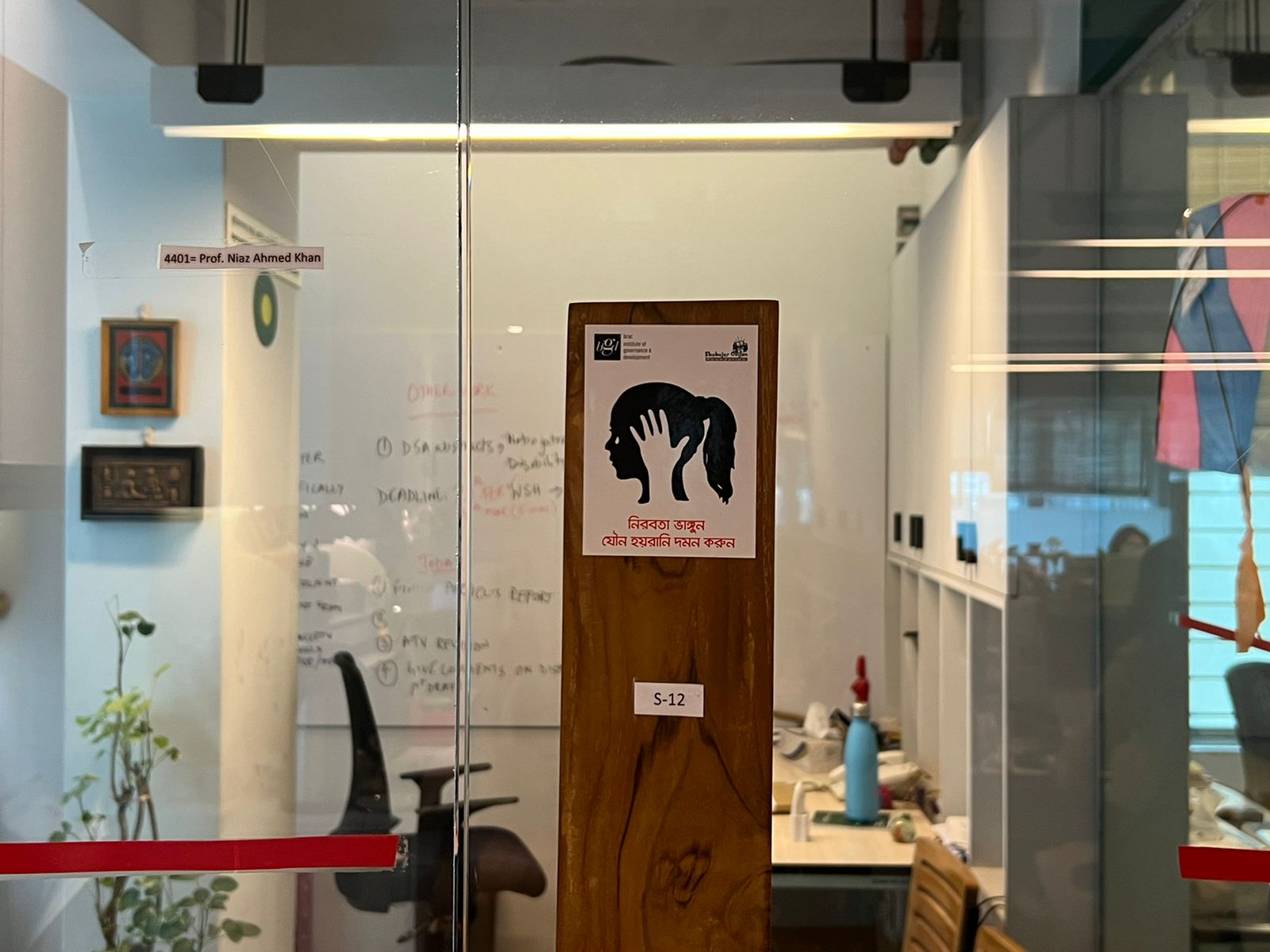New research reveals that young female workers (aged 18 to 24) in Bangladesh often experience sexual harassment at work, but their concerns about it are going ignored. Most do not dare to challenge men when witnessing or experiencing sexual harassment because of feelings of shame, and a lack of trust that taking action will generate a positive outcome. They receive little support on the issue from family members and the wider community.

Decent employment is considered a crucial avenue to agency and empowerment for young people worldwide. However, for young women, particularly from poorer backgrounds, the risk of experiencing sexual harassment in their places of work leaves them vulnerable, both in terms of physical security and finances.
In partnership with the Institute of Development Studies and Sobujer Obhijan Foundation, researchers from the BRAC Institute of Governance and Development (BIGD), Dhaka conducted research among domestic workers and factory workers in outskirts of Bangladesh’ capital Dhaka, between July and November 2021. The study looked specifically at how job informality, language and social norms influence women’s voice and agency in response to workplace sexual harassment.
Maheen Sultan, Senior Fellow of Practice at BIGD and one of the researchers said “The findings show that sexual harassment is widespread in both formal and informal workplaces, but domestic workers are particularly vulnerable to its most severe forms, assault and rape, due to their isolated working conditions. We also found that women are not passive victims, but their agency is severely constrained by social and gender norms”.
The study concludes that language is essential for voicing and challenging sexual harassment, but that social and gender norms constrain young women in articulating transgressive and inappropriate behaviour by men. Discussions of physical acts are considered vulgar and so there can be a reluctance to bring forward complaints, or confusion and misinterpretation where complaints are brought forward. At the same time, formal institutions are failing young female workers.
A team of youth researchers pursued their own inquiry as part of a project. Worryingly, their online survey among university students and teachers revealed that almost half of the 250 respondents didn’t know what had been done to resolve incidents of sexual harassment where they were witnessed. Of the women, 28% said the issue had not been resolved at all, with 23% of men agreeing.
The youth team also explored how family members respond when young females in their family experience sexual harassment at work. Interviews with young female workers and their male family members foregrounded the lack of transparency, and consequences, in the way complaints were dealt with, with some workers being fired for complaining, or police susceptible to bribes from the families of those accused.
The youth researchers spoke last year on a Bangla TV talk show about the project findings. The youth research team are campaigning to change attitudes around workplace sexual harassment, including a short film shown recently at three universities:
The youth research team have also produced a poster to display in places of work – calling out for people to ‘smash the silence, put an end to harassment’. The same design has been printed onto masks to be worn by workers.
The researchers have also shared their findings back to domestic workers and factory workers in community workshops. At a national conference on Wednesday 25th May in Dhaka, the research team will be putting forward the following recommendations to elected officials, trade union leaders and NGO representatives:
- Promote accessible language to describe sexual harassment, which can be used by people from all backgrounds and ages and will enable a person to accurately describe what they experienced.
- Train domestic and agro-processing workers on labour law and guidelines on workplace sexual harassment prevention and protection.
- Support female workers to strengthen their civic and political capacities to develop the confidence and courage to demand their rights and speak out if incidences occur.
- Encourage trade unions and the labour law should include and prioritise informal workers and issues of sexual harassment.
- Train local government representatives and law enforcement agencies on how to receive and handle complaints of workplace sexual harassment and take necessary action.
- Develop sexual harassment policies and user-friendly reporting systems in every workplace.
- Promote greater awareness and social dialogue between employees, employers, trade unions, government officials and organisations working for women and youth.